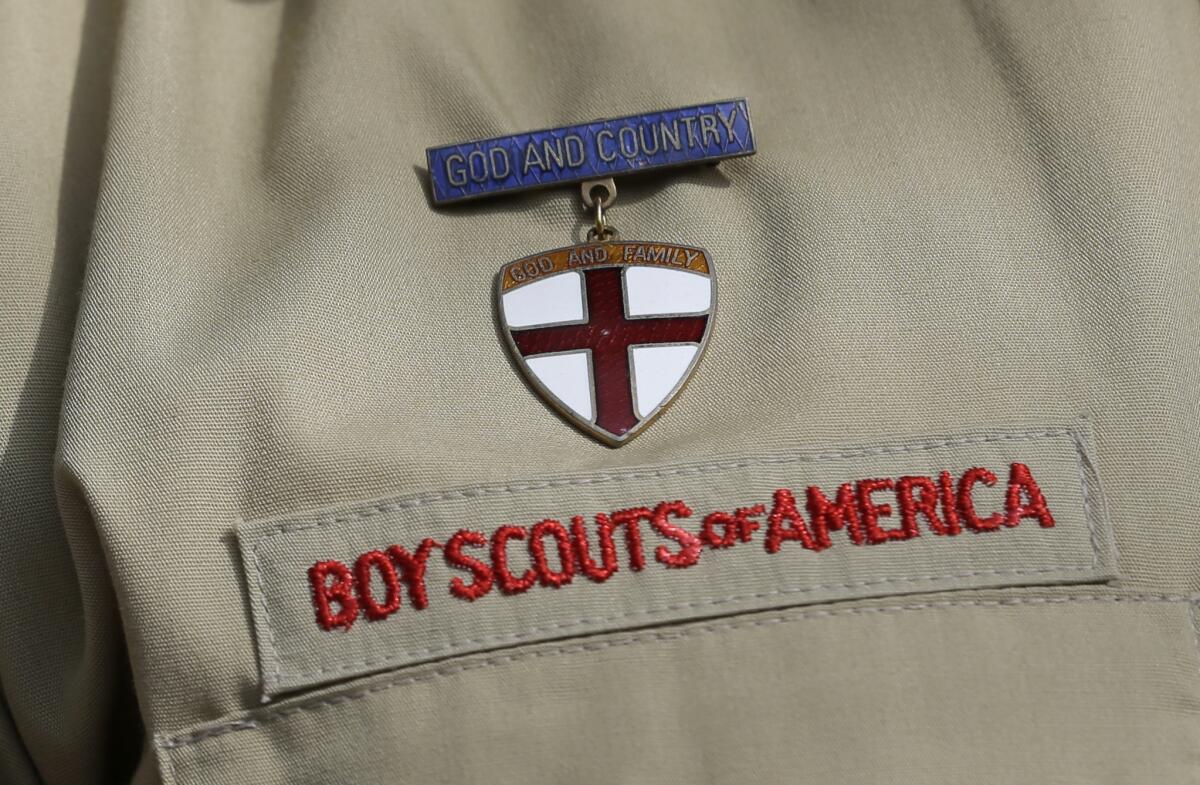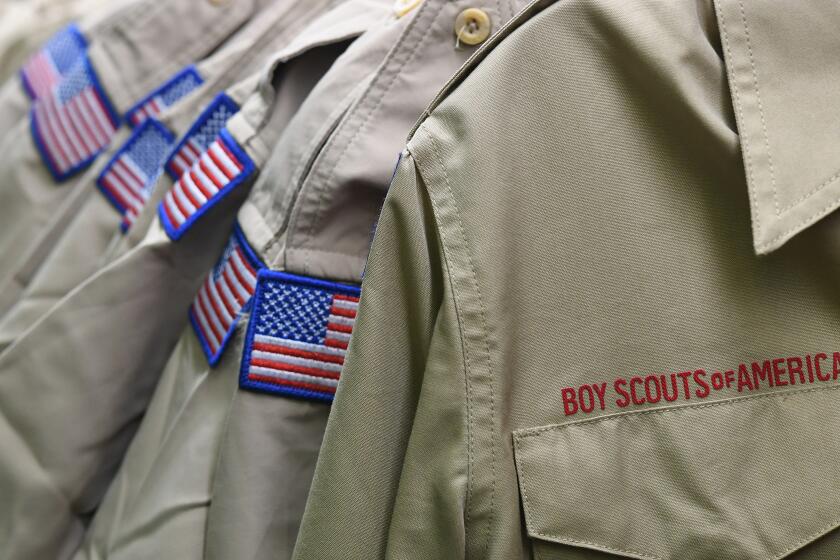Bankruptcy judge approves Boy Scouts’ $2.46-billion reorganization plan

- Share via
A bankruptcy judge has approved a $2.46-billion reorganization plan proposed by the Boy Scouts of America that would allow it to keep operating while compensating tens of thousands of men who say they were sexually abused as children while involved in Scouting.
Though legal hurdles remain, the ruling Thursday by Judge Laurie Selber Silverstein in Delaware marked an important milestone for the Boy Scouts, which sought bankruptcy protection more than two years ago to stave off a flood of lawsuits alleging child sexual abuse by Scout leaders and volunteers.
Lawyers for some of the victims said the amount an individual survivor may receive from the bankruptcy plan depends on multiple factors relating to the alleged abuse. The plan calls for the organization and its local councils — along with settling insurance companies and troop-sponsoring groups, including Roman Catholic institutions and parishes — to contribute to a fund for survivors. In return, those groups would be shielded from future lawsuits over Scout-related abuse allegations.
More than 80,000 men have filed claims saying they were abused as children by troop leaders around the country.
“Credit to the courageous survivors that this breakthrough in child and Scouting safety has been achieved,” said attorney Jeff Anderson, whose firm represented more than 800 Boy Scout abuse survivors.
Anderson said most of the $2.46 billion would be paid to survivors, but some funds would be set aside in a trust to continue litigation against entities that have not settled, mainly insurance companies.
A proposed settlement for Boy Scout sexual abuse claims includes child protection enhancements and must be confirmed by a bankruptcy judge.
It will probably take months for any of the abuse claimants to receive compensation.
Anderson said the settlement has drawn mixed reactions from his clients. Many are proud they stood up and demanded a cleanup of the Boy Scouts, whose headquarters are in Irving, Texas, while others believe they were dismissed because the organization “hid behind the statute of limitations” in some states.
The Boy Scouts of America said it was pleased that the court approved its reorganization plan.
“We continue to be enormously grateful to the survivor community, whose bravery, patience, and willingness to share their experiences has been instrumental in the formation of this Plan,” the organization said in a statement.
The Church of Jesus Christ of Latter-day Saints has been hit with several lawsuits for allegedly covering up decades of sexual abuse among Boy Scout troops in Arizona, marking the latest litigation before the state’s end-of-year deadline for adult victims to sue.
The Boy Scouts said the perspectives and priorities of the survivors “will be ingrained in the BSA’s programming moving forward.”
The Boy Scouts also said that because certain parties have said they plan to appeal the order, the organization will next begin an appeal to emerge from Chapter 11, “which will allow survivors to be equitably compensated and preserve the mission of Scouting for future generations.”
A federal district judge must sign off on Silverstein’s ruling.
When it filed for bankruptcy, the Boy Scouts faced about 275 lawsuits and was aware of numerous other potential cases. More than 80,000 abuse claims were eventually filed.
Attorneys for the organization’s insurers argued early on that the sheer volume of claims was an indication of fraud and the result of aggressive client solicitation by attorneys and for-profit claims aggregators.
Though some of those insurers later negotiated settlements, others continued to oppose the plan. They argued that the procedures for distributing funds from the compensation trust would violate their contractual rights to contest claims and set a dangerous precedent for mass litigation.
More to Read
Sign up for Essential California
The most important California stories and recommendations in your inbox every morning.
You may occasionally receive promotional content from the Los Angeles Times.















